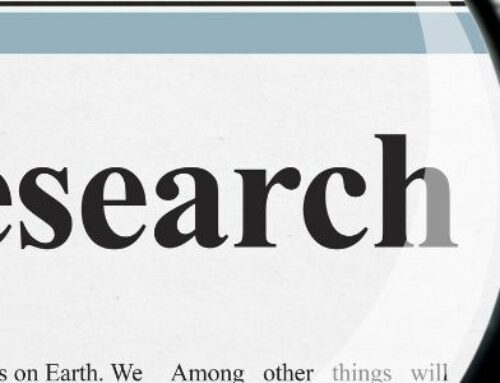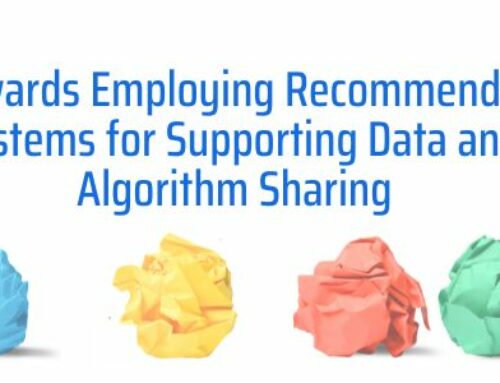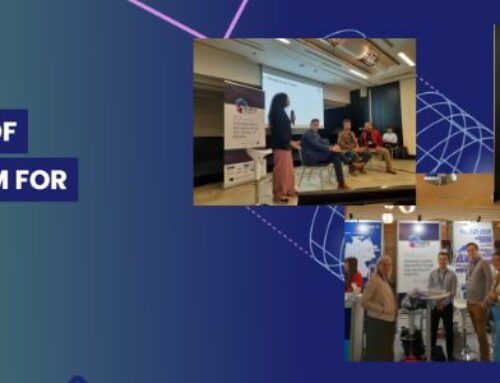The consortium partners DIO, SWC, IDSA, Forthnet, G1, KU Leuven, and Fraunhofer FIT got together for the first part of the webinar series and introduced the central aspects of the project and explained how it relates to the European Data Strategy.
TRUSTS Trusted Secure Data Sharing Space is a H2020 project, which builds on the experiences and technology of the Data Market Austria (DMA) and International Data Spaces (IDS) data market projects and aims at developing a data sharing platform for secure, trustworthy, and GDPR-compliant data exchange. In doing so, TRUSTS not only acts as data platform provider for data exchange but also as data market federator and data ecosystem facilitator.
The objectives of the project are:
- to create a secure and trustworthy European Data market for personal and industrial use by connecting different user groups and providing generic functionalities for innovative applications and services
- to identify and overcome legal, ethical and technical challenges of cross-border data markets to exploit the full potential of European data economy
Within the project, the current challenges are identified and tested in three use cases in the financial and telecommunications sector to be able to offer a viable, compliant and impactful governance, legal and business model that companies can adopt. TRUSTS will explore and develop its sustainability plan in open discussions with stakeholders from large, small, and medium-sized enterprises as well as with existing non-governmental organisations to adapt to their needs.
A European Strategy for Data
To remain competitive on a global level and guarantee data sovereignty the European Commission has developed a Data Strategy which aims at creating a Digital Single Market (DSM). This requires common European data spaces where high-quality data is used and flows across sectors while respecting European values, fair and clear regulations and implementing rules for access and data governance mechanisms. However, there are still some hindrances such as lack of European data processing and storage solutions, lack of reusable data available and lack of comprehensive data governance approaches and the fragmented single market. Moreover, citizens and businesses are sceptical towards data sharing. Therefore, enablers and common European data spaces are necessary. TRUSTS acts as such an enabler by offering a federated approach where the consortium partners work together and offer federated European solutions for data sharing. Through DMA a technical bridge was built and it is being realised in TRUSTS now. The Data Intelligence Offensive (DIO), for instance, addresses the topic of federation through data circles, in which a federated solution for data sharing is developed.
Study on data markets
A comprehensive overview of the data market environment helps achieve sustainable results for the TRUSTS project. Therefore, IDSA performs a market study in which a common knowledge base is built and insights into current trends in data markets and recommendations for the implementation of TRUSTS are provided. However, there are also some challenges faced during the study related to pricing mechanisms and data valuation, monetisation schemes, control over data, data quality and integrity as well as privacy and security. As a second step, the framework conditions are analysed in more detail – the EU Data Strategy, economical, technological and legal aspects.
Another big question is if there is a competition or coopetition. In this respect, questions like the following are analysed: How is the rivalry among competitors, What is the threat of new entrants? Or How powerful are data buyers?
Creating innovative data ecosystems – from vertical sectors to horizontal exchanges with trust-based technologies
The vision of TRUSTS is to become a focal point of data exchange and a new federated data ecosystem to be implemented in everyday business processes of companies while allowing the integration and adoption of future platforms. In doing so, it will offer a set of unified services with standardised interfaces incl. end-to-end technologies, end-to end services and end-to-end processes that function harmoniously to increase the potential for industrial change. As a consequence, the project enables migration from various silos to a connected economy and a comprehensive, transparent and legitimate data exchange.
However, is this sufficient for business sustainability? To see which data business models will be sustainable the current challenges are identified and tested in three use cases, where different stakeholders are involved.
Moreover, TRUSTS has three business roles – to act as a data market, data market federator and ecosystem facilitator. In the data market concept, data sellers and buyers are directly linked but also depend on infrastructure providers, data marketplace operators and owners, and third-party providers. As TRUSTS sees itself more than just a marketplace there are two additional roles. As a data market federator TRUSTS offers a hierarchical centralised meta platform where data marketplaces, open clouds, brokers, etc. interoperate. As ecosystem facilitator TRUSTS asks which additional roles need to be taken on to make the platform work and to help the wider data economy.
Technical foundation to enable and maintain data sovereignty
As already said, the data market infrastructure of TRUSTS is based on the experiences and technology of the DMA and IDS European data marketplaces. In addition, new elements find their place such as advanced matchmaking based on profiles and brokerage for users and organisations, data governance based on semantic technologies, and designs for interoperability with other data market places.
One of the most important technical goals of the project is to provide the components for privacy-preserving data analytics. For this purpose, it relies on the following building blocks, which will be integrated in a framework for adapting algorithms to preserve privacy and security:
- classifiers and transfer learning
- deep learning
- anonymisation and assessment of deanonymisation risk
- federated deep learning
Legal and ethical pillar – a patchwork of different legal frameworks
To guarantee legitimate data exchange and sustainable results KU Leuven looks at all relevant regulations and ethical principles to develop a solid legal and ethical framework for the TRUSTS platform.
Data markets are based on the commodification of data, however, the law does not consider it as it is quite a new area and a complex issue. It also poses a big challenge due to a patchwork of different legal frameworks that are often context-specific. This applies to both personal and non-personal data. Furthermore, new intermediary roles emerge but the question is: who is responsible for dealing with what? We have to clarify the roles and guarantee trust. Techno-regulation plays a significant role too, where data sovereignty and how smart contracts fit with the law, for instance, is tested.
To analyse the legal and ethical aspects KU Leuven looks at two complementary areas of research: the TRUSTS data market platform ecosystems and TRUSTS use cases. This leads to many different legal frameworks involved such as the data protection law, regulation of data as an economic asset, regulation of data transactions, financial law, blockchain, smart contracts and the law or ethical challenges associated with the use of AI systems.
Stakeholder engagement
To create an innovative and a sustainable business model beyond the lifetime of the project and exploit the full potential, the TRUSTS partners build up a community of stakeholders around the data ecosystem. For this purpose, the TRUSTS partners draft a model of a data ecosystem, define the key stakeholders as well as respective engagement tools and outreach activities, where results and good practices are shared with the stakeholders.
“A vital data economy and a successfully working Data-Services Ecosystem in Europe is one of the factors to enable and ensure sustainable employment and growth and thereby societal stability and well-being.” TRUSTS consortium
As a first step the data landscape (www.datalandscape.eu) is analysed – incl. data providers and users. The next step is to identify stakeholder categories such as Data and Service Provider, Data Consumer, EU Proposal/Project, Competence Center/Digital Innovation Hub, or Technology Platform, and map it with the target group per work package. The results of the stakeholder mapping will be added to the TRUSTS website in form of a landscape map.
Everyone is invited to join the TRUSTS community and contribute to the data economy, just get in touch with us at info@trusts-data.eu.
The next webinar will be at the end of January 2021 and will deal with the topic of TRUSTS business model development in more detail.
Stay tuned and subscribe to our newsletter at the top-right hand corner of the website.
Here you can access the PPT slides and the recording.




